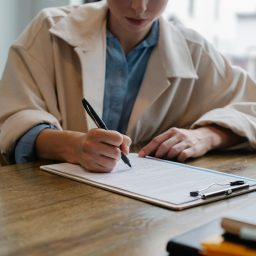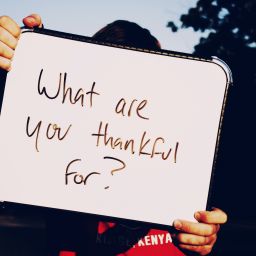
How to dress for an interview is an important question, since the way to dress can have a real impact on whether you are successful for an interview or not. Studies have shown that first impressions matter and if you’re dressed to impress, looking sharp and smart, there is a correlation in your competence to do the job. As part of our interview coaching training we always aim to emphasise on the importance of interview attire and clothing, whether it’s interview clothing for women, interview dress for men or gender neutral clothing.
What should I wear for an interview
This is a question that I get asked a lot as a coach, and my number one rule is that at the end of the interview they should not be talking about how you’re dressed. Rather they should be talking about how great the interview performance was. The basic rule of what not to wear at an interview is that the clothes don’t outshine you. Whether or not you are overdressed and undressed it should never be the main topic of conversation.
Of course there’s different types of interviews as well, some more formal and others informal. From my experience the challenge of clothing for a job interview usually comes with informal interviews. If the interviewer said “it’s just going to be a chat” it can create this ambiguity in terms of, do I dress formally or do I go smart casual. Usually in this case it’s particularly challenging to identify the appropriate men’s work interview clothing, as you don’t want to turn up to the interview with a hoodie on.
I always suggest it’s worth asking the recruiter or your HR contact what would be appropriate attire for this meeting and they will very likely tell you. Some might say we’re very relaxed here and there is no dress code at our workplace so wear what is comfortable. In this instance doing your research is key. Below are important rules of what to wear and what not to wear at an interview:
- Your dress or clothes shouldn’t take the attention away from your job interview.
- If it’s an informal interview or chat, find out beforehand the appropriate dress code and attire.
- A bit of research can make a world of difference.
- For men work interview clothing, never show up in a hoodie.
How to Dress for a Corporate Interview
In corporate interviews whether it’s for a big 4 consulting firm, Investment bank or generally in the world of the City. How you dress for the interview can have a decisive impact on whether you’re successful at a job interview particularly in the business world where how you dress matters as it’s an industry that’s full of tradition which goes back rightfully or wrongfully over 100 years.
Men’s interview attire
Below is a list of essentials and desirables for men work interview clothing and interview dress for men
- Wear a suit to the interview, ideally black dark grey or dark blue.
- Wearing a crisp white shirt.
- A single or two-tone tie ideally done with a Windsor knot.
- A pair of black or dark brown leather shoes.
- A well groomed beard using beard oil, if you’re not keeping a beard, it’s generally not recommended to have stubble, rather better to go in with a clean shave.
- Wear a nice Cologne which is not overpowering – desirable
- A watch that goes well with your suit – desirable
Women’s Interview Attire
Interview clothing for women particularly within the corporate world is slightly more challenging and this is because unlike men work interview clothing, women have more options which is a positive but at the same time it makes the decision of deciding what to wear for the job interview that much more difficult. So below I’ve listed some essential clothing for a job interview for women.
- A neutral coloured dress, think black, dark blues, light greys, but also think about including elements of the company’s logo colours into your attire to give that personal touch.
- If you decide to wear make-up ensure that neutral makeup is worn.
- Wear comfortable footwear that matches with your your outfit if you’re deciding to wear heels ensure that you are comfortable and confident in walking in them.
- If you’re not sure what type of dress or clothing to wear the safest option is always to wear a blazer jacket or wear a suit to the interview minus the tie.
- Wearing a brooch can showcase your personality, it’s worth considering wearing one that has a story behind it as it could also become a talking point to build rapport in the interview.
- Be conservative with the amount of jewellery you’re wearing. You don’t want the Jewellery to be the star of the interview.
Gender-Neutral Interview Attire
In the West particularly the US, Canada, the United Kingdom and parts of Europe gender neutrality has become an important part of certain organisations’ cultural value systems. With this being the case some companies might prefer interview candidates to wear general neutral clothing for a job interview. Alternatively you yourself might feel more comfortable with gender neutral attire. Below is a list of things you can do for your next interview.
- Wearing neutral clothes such as black, grey, dark blues, beige etc.
- Research the company and get a feel for the level of neutrality which will be applicable.
- Wear clothes that are professional, yet also make you feel comfortable.
- Avoid excessive jewellery that pertains to any particular gender.
How to Dress for a More Casual Interview
As more professionals are now working from home due to the internet. From this has arisen a completely new e-commerce and online industry which include many start-ups and new tech companies. Being new, the idea of formal dress within the workplace is seen by many as a dated concept of a bygone era. It’s not uncommon To turn up to a video interview and the interviewer or hiring manager is wearing a hoodie or a casual jumper. When it comes to how to dress for an interview, specifically a casual job interview, below are my top tips.
- Be casual but ensure that what you wear isn’t partisan or opinionated.
- Your clothes are clean and ironed and that you do look smart.
- Research how the company staff dress and align your casual wear with them.
- You still have to look good so make sure that the colours match and the clothes compliment each other.
- If you’re not sure what casual means, think about what you might wear when you go out to a nice restaurant for dinner.
Tips for Making the Best Interview Impression
Making a positive interview impression can change The Fortunes of any interview you could be an underdog going into the interview but if you make a fantastic first impression it can have a halo effect and all of a sudden the answers that you’re giving are being received better by the interviewer. you have to remember that you’re being interviewed by human beings therefore naturally there will be a degree of subjectivity in the decision-making process therefore, in particular first impressions matter. Below is my top job interview advice to make the best first impression and last impression.
- Make sure that you’re dressed to impress.
- Research the interviewers to learn about them to help you with engaging in small talk.
- Research the organisation so that you can utilise it during the job interview.
- Send a follow up email after the interview if you feel that you enjoyed the interview and were treated well.
- If it’s an in-person interview make sure that you speak to reception because it could very well be that the interviewers might ask reception what they thought of you.
- make sure that you engage in small talk before the start of the interview. Be curious and ask questions.
What to bring to an interview
In an interview you’re not expected to bring anything other than yourself. However for certain types of interviews particularly at a senior level it’s important to be ready for any type of situation. This is something that we focus on in executive interview coaching so that you leave no stone unturned. Below are our top tips of what to bring to an interview.
- Bring a high quality pen, you never know when you might need to use it.
- Have a folder with you with a copy of your CV as well as any important pieces of work so you can share it with them if required.
- Bring a USB stick with a copy of your presentation, if you’re presenting at the interview. Usually you’re expected to email them in advance, however in case there was a problem you have a back up.
- This goes without saying, bring your phone, but make sure it’s on silent, you never know what you might need it for.
What Not to Bring to the Interview
Just as there are things that you should bring to an interview equally there are things that you definitely shouldn’t bring to an interview. As doing this could possibly scupper your chances of landing the job. Below are a few things that I’ve listed which you shouldn’t bring to an interview.
- A bulky bag or large briefcase with nothing of value to the interview within them.
- Any negativity or baggage about your current or previous workplace.
- A fear of failure attitude, remember you’ve got nothing to lose just something to gain.
- Where are any items that have some form of political or partisan meaning on them, for example a pro-fox hunting wristband.







